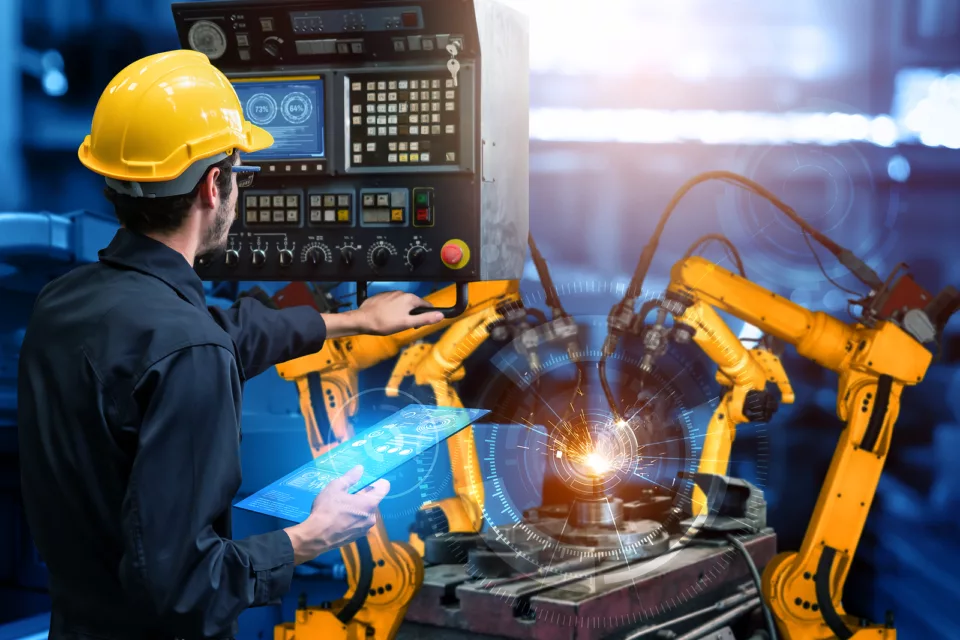AI is for more than just chatbots

The era of digital manufacturing began back in the 1980s, when production plans and output designs started to be developed on computers instead of paper. Next came the integration of the internet, connecting ideas, processes, and data across various production units, enterprises, and even product users to enable a kind of collaborative manufacturing. Today, we are rapidly moving into the stage of “intelligent manufacturing,” where artificial intelligence combines with digital and networking technologies to inform and guide manufacturing processes and formulate new designs, products, and business models without human intervention.
Powered by artificial intelligence, intelligent manufacturing utilizes real-time data drawn from equipment sensors to optimize operations from supply management to manufacturing to final product testing. Key roles of current AI-powered manufacturing solutions include:
- Smart scheduling and process control: By closely monitoring line functions in real time, intelligent manufacturing can control the flow of raw materials, optimize the build process, and manage production schedules for the greatest efficiency and cost effectiveness.
- Preventative maintenance: Through AI and machine learning, intelligent manufacturing can apply “smart” fault detection and classification processes to uncover and correct product flaws, as well as predict equipment failure, take proactive steps to remediate it, and minimize downtime.
- Creation of digital twins: By creating and testing a virtual replica of a product, intelligent manufacturing can gain insights into its physical counterpart, vastly improving the efficiency and cost effectiveness of new product development and production.
The benefits of AI-powered intelligent manufacturing are significant, and organizations both large and small are evolving their operations to include “smart” production elements. A recent survey of manufacturers across industries by Rockwell Automation found that the adoption of smart manufacturing grew by 50% year over year in 2022, with 83% of survey respondents saying that smart manufacturing is a key to their organization’s future success.*
For organizations interested in intelligent manufacturing for their factories, the necessary technology hardware and software is becoming more accessible, as is the advice and direction of providers and consultants to help with strategy and implementation. Many leading software developers have robust manufacturing platform solutions that are constantly being improved, based on technological advances in AI and machine learning. And as applications of intelligent manufacturing proliferate, solutions for specific or targeted use cases become more available at lower cost.
If your organization is considering moving to the next level in manufacturing, we are here to help support you and provide the resources you need to evolve and grow your business.
* 7th Annual State of Smart Manufacturing Report, Rockwell Automation
Contact a Trusted Advisor
For more information or to speak with one of our trusted advisors about your unique financial needs, contact us at 800-475-2265 or submit an online form.











